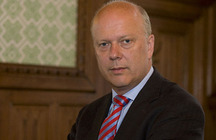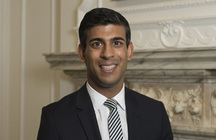Chris Grayling – 2017 Statement on EU Transport Council
Below is the text of the written statement issued by Chris Grayling, the Secretary of State for Transport, on 28 June 2017.
The only Transport Council under the Maltese Presidency (the Presidency) took place in Brussels on Thursday 8 June. The UK was represented by the UK’s Deputy Permanent Representative to the EU, Katrina Williams.
The council adopted a general approach on lorry and bus driver training (Driver CPC Directive) as well as council conclusions on road safety and the EU’s maritime priorities. All 3 were widely supported by member states. The UK intervened to support the road safety conclusions, welcoming the elements related to safer road infrastructure and connected and autonomous vehicles, and highlighting the UK’s Safer Road Fund.
Under any other business, a range of items were discussed. The Commission presented its new mobility package of proposals which aims to modernise the road transport framework and strengthen the competitiveness and social standards of the EU road haulage sector. Some member states supported stronger social standards in the road transport sector while others felt the Commission’s proposals did not sufficiently support liberalisation in the sector. A number of member states called for the political and geographical balance of the proposals to be carefully considered.
The Presidency provided information on the progress of the trilogue discussions with the European Parliament on a Professional Qualifications in Inland Navigation Directive and the European Aviation Safety Agency (EASA) Regulation. Overall member states welcomed the substantial efforts of the Maltese Presidency in negotiations to date with the European Parliament.
The Commission presented an overview of the ‘open and connected Europe’ aviation package which was published on the morning of the Transport Council. The package includes a proposal to revise Regulation (EC) No. 868/2004, guidelines on airline ownership and control, guidelines on public service obligations and best practice on minimising air traffic control disruptions.
Sweden provided information on her approach to protection against acts of terror in road transport in light of the terrorist attack that occurred in Stockholm in April. The UK intervened to express its solidarity and emphasise the importance of this issue and of sharing best practice, supported by other member states. Those who intervened offered condolences to the UK following the London Bridge attack on 3 June.
In addition, the Commission updated the council on recent developments on aviation security and the Netherlands asked the Commission to provide information on their work on social issues in aviation. Luxembourg urged member states to speed up the implementation of the European rail traffic management signalling system (ERTMS) and presented the work she had done to develop a blue-print EU cycling strategy. Germany flagged the high-level dialogue on connected and autonomous driving that would take place in Frankfurt on 14 and 15 September and the Estonian Presidency presented its work programme for its presidency beginning 1 July 2017.
Over lunch Commissioner Bulc led a discussion on an initial strategy at the International Maritime Organisation (IMO) on reducing greenhouse gas emissions from ships.



